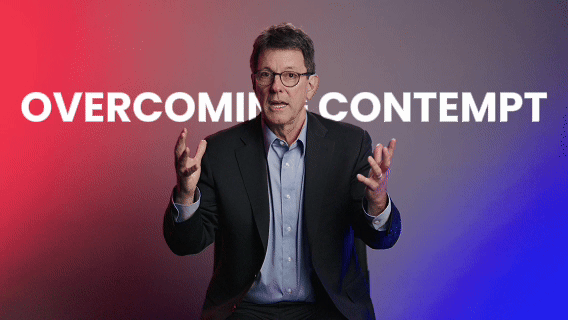Last week, I had the privilege of attending a remarkable event in Denver—a gathering of civic leaders, religious teachers, and community members. The theme of the gathering was “Repairing the Breach,” a conversation focused on bridging cultural and political divides.
Held at Temple Emanuel, the event featured inspiring voices, including Colorado Governor Jared Polis, former Governor Bill Owens, local religious leaders, and my colleague Tim Shriver. Tim set the tone beautifully by presenting dignity as a strategy for those seeking to heal divides and become “repairers of the breach.”
The speakers shared honest and, at times, surprising reflections on their experiences with division and conflict. Shara Smith from the Interfaith Alliance of Colorado offered a perspective that particularly resonated with me.
Describing the diversity of religious perspectives within her family, she said, “When I see intense diversity, I see purpose.” She highlighted the beauty of working within such diversity and shared how her family experience has made her sensitive to groups that others might “write off,” knowing these groups often represent the very people seated at her family table.
Dave Runyan, Director of a faith-based bridging organization in Denver, reinforced this message of embracing diverse thought, saying, “I’m still looking for the place that says, ‘Love thy neighbor… if they believe the same things you do.’”
One comment though, caught me off guard. Rabbi Emily Hyatt spoke about the differences of practice within her own religion and how those differences can sometimes lead to conflict. She cautioned, “It’s really hard to look at somebody who does something different than you and not think that their choice is a judgment on you. It’s not. But oh, does it feel like it!”
That insight was startling. I had never really considered that negative reactions to people who think or act differently could stem from a feeling of being judged. For me the difficult work has been to suspend my judgement of others whose opinions and choices may irritate me. I’m always struggling to not judge! But Rabbi Hyatt’s words made me think—what about the fear or pain or anger that comes from feeling judged?
This idea has stayed with me all week, prompting me to reexamine my own reactions to differences, especially within my family. I’m blessed to have five adult children, each with a wonderful spouse and beautiful children. And each with their own views on everything from parenting to politics. Sometimes their opinions align with mine, but often they don’t. When it comes to politics, all five of them identify with a different political party—a fact I’ve always considered a “parenting win.”
As someone who spent 20 years in elected and appointed offices, I’ve been proud of their interest in politics and the thoughtful development of their own political identities. But in these past few years, as polarization has deepened across the country, it hasn’t felt much like winning. Navigating our family’s political differences has been challenging, but I’m learning to appreciate the “purpose in our diversity.”
This new lens—to consider how reactions to differences might stem from a sense of feeling judged—has been eye-opening. It’s a perspective I want to apply not just in family interactions but in other areas of my life as well. When I feel angry, hurt, or uncomfortable, I can ask myself: Am I reacting this way because someone else’s choice feels like a judgment of me? If someone disagrees with me, do I automatically assume they’re judging me?
As my children have grown older, they’ve established their own families, traditions, priorities, and yes, politics. The counsel at Temple Emanuel is just what I needed to hear — especially during this season when the tug of family and tradition and shared experiences is especially strong for me. This year all of our children will be celebrating Christmas with their own families or in-laws, while my husband and I begin some new traditions of our own.
During this time of change I’ll remind myself that different choices, opinions, and even new holiday traditions don’t need to feel like judgments or critiques. They’re simply differences. And in a growing family, those differences should not only be expected but celebrated.
As we enter the coming weeks, I hope you, too, find joy and maybe even purpose in the “intense diversity” within your families and communities. And I hope you will find opportunities to be menders, builders, and healers of the breach.
Tami




